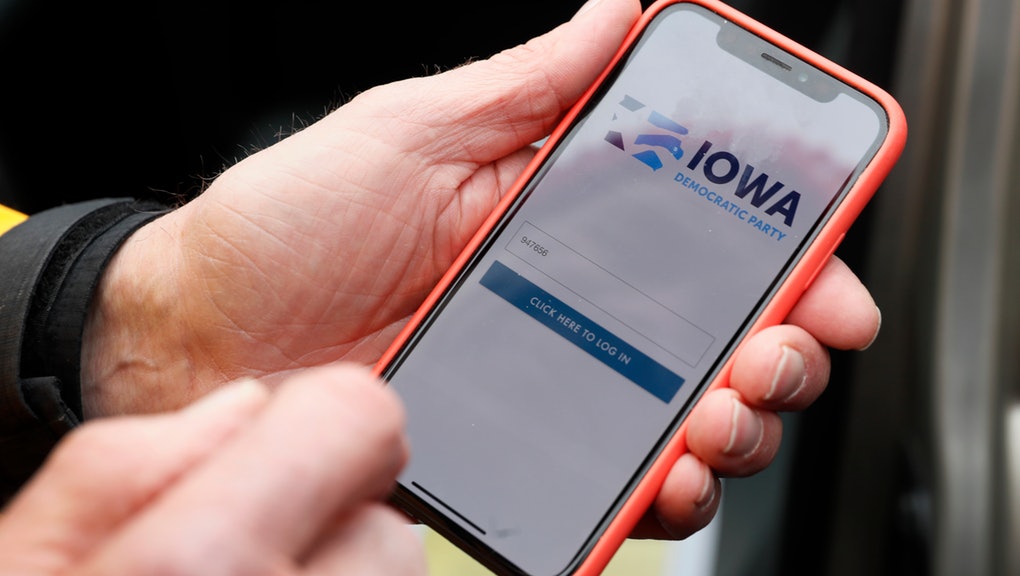As a new presidential election gets underway, the convoluted first stage of the process, the Iowa caucus, concludes in an accordingly tentative photo-finish. The previous Iowa caucus, too, was a close race, with victory designated on the grounds of one-quarter of one percentage point.
This year’s caucus distilled an even less decided result in just one-tenth of a percentage point, though, more prominently, it featured a hiccup in the process. For the first time, Democratic National Committee and the Iowa Democratic Party employed the use of a smartphone app to aid in calculations and data collection. The app faltered, however, causing incomplete reporting of results and delaying the conclusion of the caucus. This, and questions about the veracity of the process as a whole.
The construction of the app, called IowaReporterApp, was contracted by the political party to a small tech firm known as Shadow Inc., to whom over $60,000 was paid according to mandatory disclosure documents. The company faced significant criticism for the mishap, taking to Twitter to address detractors. They write that they “sincerely regret the delay in the reporting of the results” and the “uncertainty” it has cast upon “candidates, their campaigns, and Democratic caucus-goers.” The DNC has placed the blame on a “coding issue.”
In pursuit of just what went wrong, tech publication Motherboard interviewed a handful of experts. Namely, a lifetime Android developer Kasra Rahjerdi said of the app that he “[doesn’t] want to throw it under the bus—but the app was clearly done by someone following a tutorial. It’s similar to projects I do with my mentees who are learning how to code.” Adding onto the scathing remarks is a cybersecurity CEO, noting that “The mobile app looks hastily thrown together.” The source code for the app has gone public, available for anyone to review.
The severity of the misstep has led many to look into the relatively unknown tech firm. Shadow Inc., a for-profit company, was started by a company called ACRONYM, which is a 501(c)(4) non-profit founded by a political strategist of the DNC. Unlike the apolitical 501(c)(3) designation for non-profits, ACRONYM can freely jockey for political influence and participate in political campaigns.
On Feb. 4, nominee Pete Buttigieg claimed victory on Twitter and in a speech to Drake University in Des Moines, a whole week before the official caucus results were sorted out and published, mired in the IowaReporterApp debacle. “By all indications, we are going on to New Hampshire victorious.” In the speech he mentioned that “by the time it’s all said and done, Iowa, you have shocked the nation.” Since then, Buttigieg’s victory was made official by the magical one-tenth of one percent, by far the closest caucus in American history.
The mentioned political strategist and ACRONYM founder, Tara McGowan, has since sought to distance her non-profit from the incorporated Shadow. On Twitter, she pushed that Shadow Inc. is an “independent company” and that ACRONYM “invested in” the company, and according to an official statement by the company, it is “eagerly awaiting more information from the Iowa [DNC] with respect to what happened,” commensurate to their claimed role of mere investor. A year earlier on Twitter, she announced that ACRONYM was “launching Shadow, a new tech company to build smarter infrastructure for campaigns”
McGowan is married to Michael Halle, who is a top strategist for Buttigieg’s narrowly victorious campaign, a campaign which has also paid out to Shadow Inc. for software. She, Halle and Iowa DNC chairman Troy Price can be seen also on McGowan’s Twitter, pictured celebrating a birthday.
According to LinkedIn, the current CEO of Shadow Inc. Gerard Niemira served as The Chief Operating Officer at ACRONYM for 3 months, after serving as their Chief Technology Officer for a year. Both companies are registered at the same Washington D.C. address, a WeWork co-op building. LinkedIn work histories also show that all top executives at Shadow worked in the digital arm of the Clinton campaign in 2016.


